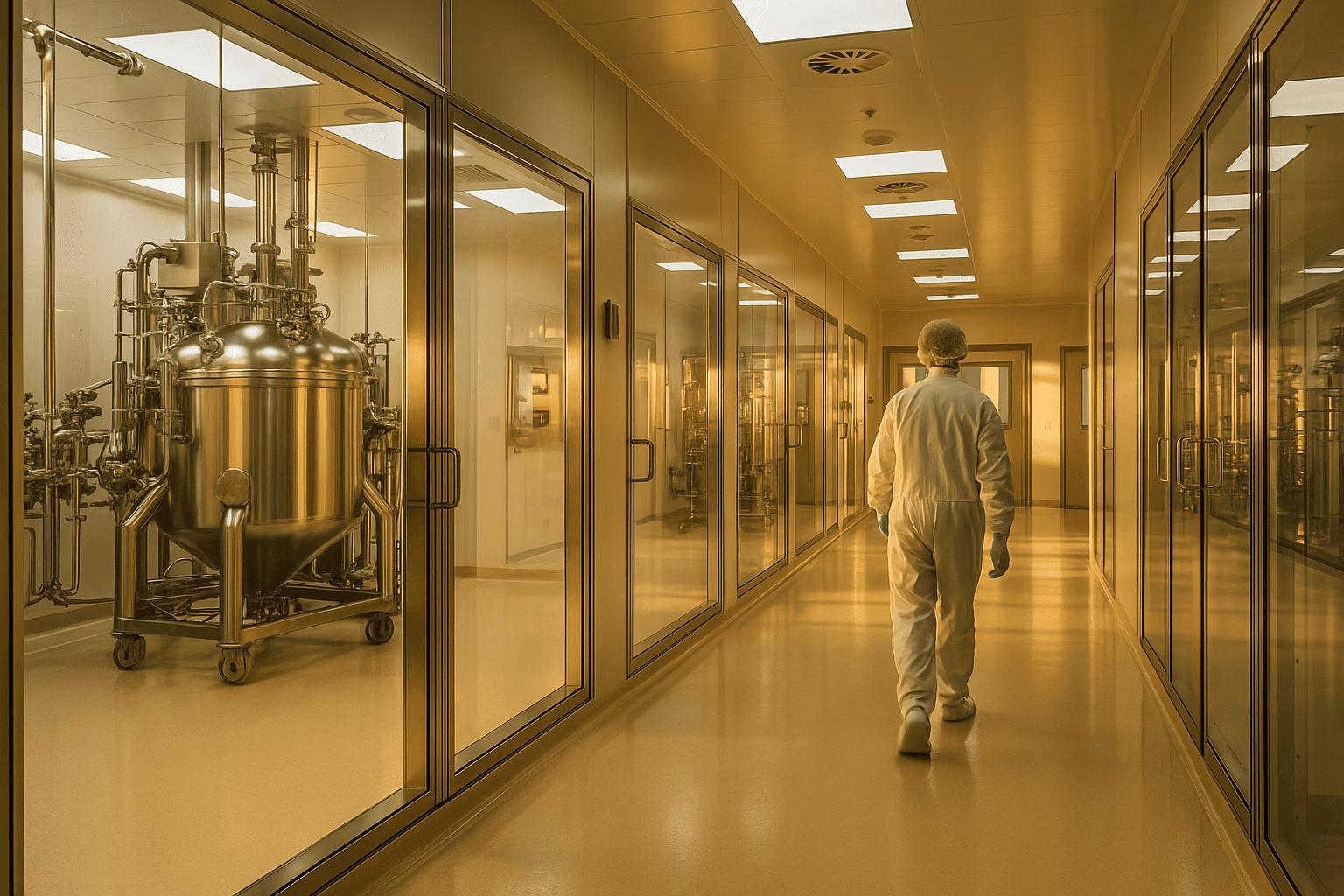Eli Lilly Pours $1.2 Billion Into Puerto Rico Plant Expansion
By Tredu.com • 10/29/2025
Tredu

What Lilly is building, and why now
Eli Lilly said it will invest more than $1.2 billion to expand its long-running manufacturing site in Carolina, Puerto Rico, adding capacity for oral medicines and anchoring production for the weight-loss pill orforglipron, pending approvals. The Eli Lilly $1.2B Puerto Rico plant expansion is the latest step in a U.S. manufacturing push that aims to harden supply chains, hedge tariff risk, and support a product portfolio that is scaling quickly.
The product focus: orforglipron and oral pipeline
Lilly plans to use the upgraded Carolina facilities to manufacture orforglipron, an investigational oral therapy for weight management that the company expects to file with global regulators by year end. Beyond orforglipron, the site will support production for therapies in cardiometabolic disease, oncology, and immunology, giving Lilly flexibility as launches and volumes evolve. Production plans are designed to complement injectable capacity built out elsewhere in the network.
Timeline and jobs
Construction at the Puerto Rico plant is targeted to begin in 2026, with initial output of oral drugs expected by the end of 2028, a 2026–2028 window that sets investor expectations and staffing ramps. Lilly said the expansion will create about 100 skilled permanent roles in high-tech manufacturing, quality, and operations, and as many as 1,000 construction jobs during the build. The company highlighted the site’s six-decade operating history and its trained workforce as reasons to scale in Carolina.
How the project fits the $50B U.S. manufacturing push
The Puerto Rico investment slots into a previously announced plan to deploy roughly $50 billion across U.S. facilities, including four new sites detailed earlier this year and additional locations to be named. The strategy favors redundancy and proximity to end markets, a stance companies adopted as policy risk and supply shocks made offshore reliance less attractive. For Lilly, the U.S. footprint also aligns with public guidance to source more medicines domestically.
Tariffs, resilience, and policy backdrop
Company statements and recent policy signals point to an effort to hedge against possible import duties on active ingredients and finished medicines. A larger U.S. base shortens supply lines, simplifies regulatory compliance, and can reduce customs exposure for critical products. It also positions the firm to respond quickly if demand for drugs like orforglipron outpaces early forecasts. The Eli Lilly $1.2B Puerto Rico plant expansion is therefore an industrial hedge as much as a growth bet.
Why Puerto Rico
Puerto Rico blends deep pharma know-how, a seasoned labor pool, and established utilities for validated processes. The Carolina site has operated for roughly 60 years, which reduces ramp risk because quality systems, supplier relationships, and regulatory familiarity are already in place. The territory’s logistics links to the mainland and existing cluster of life-science vendors add to the appeal for a project that must move from ground-break to GMP output on a tight schedule.
Capacity, quality, and flexibility
Oral drug lines must scale without compromising quality. Lilly’s plan emphasizes modular capacity, upgraded analytics, and digital process controls that allow format shifts as the product mix changes. The design targets efficient batch release and resilient uptime, with room to add skids or suites if demand for the weight-loss pill accelerates after approval. That flexibility is central to a portfolio where cardiometabolic and oncology volumes can change quickly.
Local economic impact
The jobs tally is modest by mega-site standards; the construction phase is where headcount jumps. Even so, the permanent roles are high-wage technical positions that support a broader local vendor base in packaging, calibration, and quality services. For the territory, the project extends a manufacturing heritage while adding skills in advanced oral dosage forms, analytics, and serialization, which can attract additional investment.
Financing, milestones, and disclosure to watch
Investors will track capital deployment cadence, validation milestones, and any signals about orforglipron launch timing that affect capacity plans. Key dates include ground-break in 2026, equipment installation and qualification through 2027, and target output by late 2028. On the commercial side, regulatory submissions and label scope will steer batch sizes and inventory policies; early decisions on stocking and market prioritization can bring the 2028 output ramp forward or push it out.
How this ties to broader network moves
Earlier in the year, Lilly outlined at least $27 billion in spending for four new U.S. sites, including two facilities in Texas and Virginia, with more locations to be announced. The Puerto Rico expansion complements those plants by focusing on oral forms while other sites carry injectables and biologics. The mix should help smooth bottlenecks and reduce the risk that one factory or dosage form becomes a single point of failure.
Risks and mitigations
Execution risk is real: large pharma builds face supply constraints for equipment, skilled labor competition, and permitting timelines. A delayed approval or narrower-than-expected indication for orforglipron could also alter the pace of capacity utilization. Lilly’s diversified pipeline, the site’s operational history, and the company’s broader U.S. network help mitigate these risks by allowing reallocation of lines and staff if demand shifts.
What success looks like
Three signals will define success. First, construction that stays on schedule through 2026–2027 with clean validation. Second, regulatory progress for orforglipron, so oral capacity is fully utilized soon after the 2028 target. Third, steady hiring and training that yields quality lots and high first-pass release. If these boxes are checked, the Eli Lilly $1.2B Puerto Rico plant expansion moves from headline to growth engine.

How to Trade Like a Pro
Unlock the secrets of professional trading with our comprehensive guide. Discover proven strategies, risk management techniques, and market insights that will help you navigate the financial markets confidently and successfully.


